Washington’s largest street festival re-emerged on H Street NE on September 18 for the first time since the start of the COVID-19 pandemic. While festival organizers and vendors said the pandemic shifted the planning landscape of the event, on the surface, the H Street Festival seemed back to normal.
In the days and weeks leading up to this year’s festival, Anwar Saleem, Executive Director of H Street Main Street, and his two colleagues worked around the clock to coordinate and execute the annual event, which went virtual in 2020 during the early days of the pandemic.
Planning this year’s festival stretched the staff in new ways as the pandemic wears on and continues to affect everything from supply chains, market prices, labor availability, and volunteerism in the H Street community.
“It’s a lot of work. It’s kind of tough,” Saleem said, “we don’t have as many volunteers because of the pandemic, so you have to retool and readjust.”
In a normal year, Saleem said, the H Street Festival would utilize over 100 volunteers. This year, they had just 20 volunteers confirmed on the Friday before the festival.
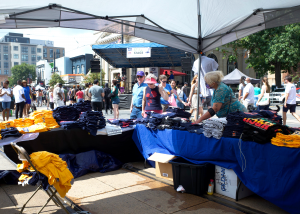
The same shortage applies to festival vendors. Saleem said this year’s event would have fewer vendors and he suspected the reason was, “one of two things: one is fear of what’s happening down at the Capitol, the other is the pandemic.”
While the effect of the pandemic was evident in the festival’s planning, Saleem said he wasn’t sure how much it would affect actual festival attendance.
Pre-pandemic, the festival would attract between 125,000 and 150,000 people throughout the day. In an interview after the festival, Saleem said this year they had just over 100,000 visitors.
Saleem emphasized the importance of a strong turnout both from vendors and attendees for the H Street community.
“The festival serves as a Black Friday for many of our businesses,” Saleem said. On the day of the festival, businesses make, “three, four, five times as much as they would make on a normal day and so they’re able to pay a lot of bills.”
For Saleem, the festival is about keeping the H Street corridor “vibrant” and “economically feasible”
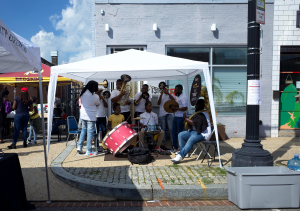
Though Saleem said the ongoing threat of COVID-19 may keep some vendors and attendees home, he was confident in the steps the festival planned to take to keep people safe from the virus.
Saleem said he stocked up on hand sanitizer and 20,000 disposable masks for distribution and said the festival would require masking except while eating or drinking.
On the day of the festival, police presence was significant due to the Justice for J6 rally at the Capitol, but the mood among festival-goers and staff seemed unaffected by events outside H Street and the COVID-19 pandemic.
As in years past, the festival spanned 11 blocks, from Third Street to 14th Street, and featured seven stages, each displaying bands, dance performances, and fashion shows simultaneously. Food trucks and artisans lined the streets, and attendees searched for patches of shade and misting tents to cool off on the unusually warm September day.
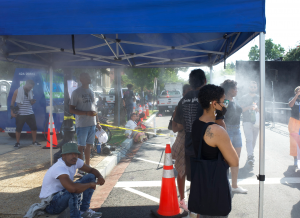
Jenilee Hurley, Co-Owner of EthicGoods, said it felt “nuts” to be back at a bustling festival, selling her handmade jewelry.
Business for EthicGoods “stalled out” during the pandemic, Hurley said, but they’re growing now and have been “eager to get back and sell and do business.”
For Angelica Callanta, owner of Found Objects, the gains of selling at the H Street Festival and returning to the festival circuit outweighed the risks of COVID-19 and the right-wing rally at the Capitol.
Callanta said her business is, “maybe at best 40% of what it was before the pandemic.”
“I make most of my money traveling and doing markets,” Callanta said, “and obviously I couldn’t do that [during the height of the pandemic], so the money went away.”
For the people and businesses that rely on the festival, showing up on Saturday was worth the risk, but the risk may have been higher than advertised.
Despite Saleem’s assurance that masks would be distributed and required at the H Street Festival, there was no signage or noticeable enforcement of these rules and the majority of attendees and vendors seemed to forgo their masks.
In the end, Saleem said he was happy with how this year’s festival went and has received a lot of positive feedback already.
“Some people said it was the best festival ever,” Saleem said, though he wasn’t sure if he entirely agreed.

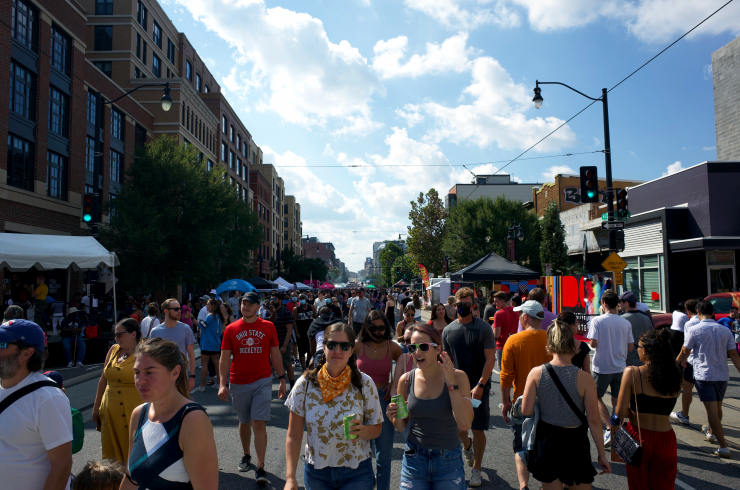
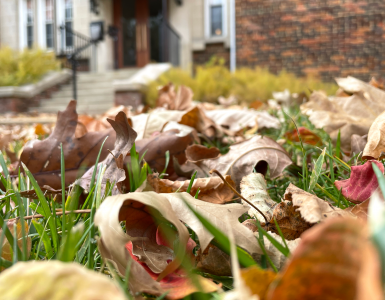












Add comment